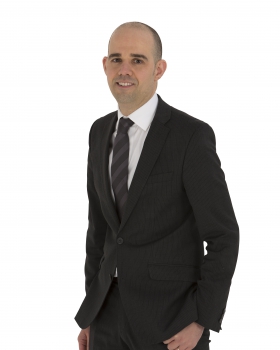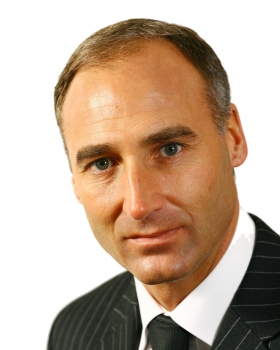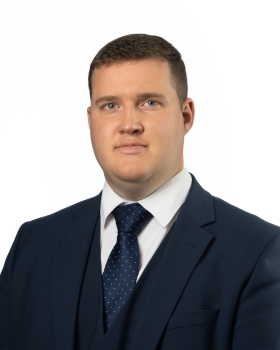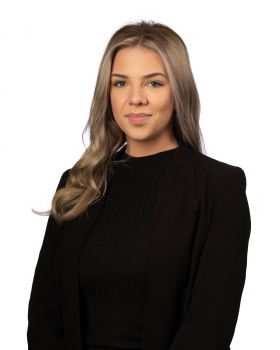Personal
Inquest Solicitors
SOLVING PERSONAL LEGAL MATTERS

What is an Inquest?
If an individual dies and the coroner has reason to suspect that their death is violent or unnatural; the cause of death is unknown or, the death occurred whilst in custody, then the coroner must, as soon as reasonably practicable, investigate that death. An inquest is a part of this process.
How does an Inquest work?
The inquest is the term used to refer to the actual court proceedings where the coroner's initial investigations are that the cause of death is undetermined. The inquest is a public, fact-finding inquiry solely directed to ascertaining who the deceased was (their name), along with how, when and where they came by their death. In some situations, the coroner will conduct an Article 2 inquest which is much wider in scope and will look at the circumstances by which the deceased individual came by their death.
It is a fact-finding inquiry and so no blame will be apportioned to any individual or organisation. However, attending an inquest can be confusing, distressing and worrying for witnesses who are asked questions about their knowledge and involvement with the deceased prior to their death, especially as there may be a risk of potential civil action taken if, for example, a finding of negligence has been found as a contributing factor.
What happens at an Inquest into a death?
The coroner directs the proceedings at an inquest which must be held in public. Therefore, anyone is able to attend and watch the proceedings. All of the witnesses must have provided the coroner with a signed witness statement setting out their contact or involvement with the deceased just prior to their demise. The coroner will have decided in advance of the inquest which witness statements will be read out and which witnesses will be required to attend to give further information.
The coroner will decide which order the witnesses present their evidence and will use the statement as guidance but will also ask questions of the witness to assist in their understanding of how the deceased came by their death. Once the coroner has asked questions, the family of the deceased are permitted to ask questions of the witness followed by the legal representatives of any Interested Parties. Thereafter, the legal representative of that particular witness may ask questions to clarify any matters.
Once all of the witnesses have given evidence, the Interested Parties, normally through their legal representatives, may address the coroner on potential conclusions that may be reached as to the cause of death. This is particularly important when the issue of negligence is being considered as a potential causative factor. This is because it could result in a civil claim being brought by the family to that individual or organisation. They are also able to address the coroner on whether or not action needs to be taken to prevent any future deaths (PFD) from being caused. This is a very important stage in the inquest and specialist legal advice is essential as the ramifications from a PFD can be expensive and result in adverse publicity for the organisation concerned.
How long will it be before the Inquest commences?
Some investigations prior to an Inquest unfortunately take longer than others depending upon what material has been requested by the coroner. The coroner may have asked for medical reports to be obtained from experts or local authorities may have conducted their own investigations and the coroner may request a copy of these reports and outcomes. However, the Coroner's (Inquests) Rules 2013 require that an inquest must be completed within 6 months, or as soon as reasonably practicable thereafter.
There are sometimes outside factors which may cause a delay and affect how long an inquest takes to be heard. For example, the COVID-19 pandemic, with subsequent lockdowns and safety measures put in place, caused significant disruption and a backlog of inquests to be carried out.
How long does an Inquest last?
All inquests are different. Some may take an hour whilst others may take a day or a week. It all depends upon how many witnesses are required to attend at the inquest together with the length of time taken to be asked questions by the legal representatives of the Interested Parties.
However, all inquests are in public so anyone can attend and watch the proceedings. They are also recorded and evidence is given on oath by each witness, which is a promise to tell the coroner the truth. It is therefore essential that expert legal advice is obtained as soon as you suspect that the coroner may wish to hear about your involvement so that your full knowledges of the circumstances surrounding an individual's death can be explored.
Do I need a solicitor at an Inquest?
If you are an Interested Party and are required to attend an Inquest, we would advise that you obtain legal advice and representation. At Forbes Solicitors, we have an experienced and dedicated team of in inquest solicitors who will assist you in drafting your witness statement as well as obtaining and preparing any exhibits or other documentation which the coroner will require. As experienced solicitors dealing with inquests, we are also able to advise you at an early stage whether there is any risk of a civil claim or criminal prosecution as a result of your contact or involvement with the deceased individual, and can help to minimise such risks. When an individual from a professional organisation such as the medical profession, a social worker, a police officer, a prison officer or other care staff have been required to provide a witness statement, the potential for further action increases. This could be a referral to your regulatory body or even a cause of action for negligence. In some cases, individuals and organisations could find themselves being prosecuted for corporate manslaughter. Early legal advice is essential in minimising this risk as we can draft your statement and advise you of any action which you ought to take before attending an inquest.
Are there different types of Inquest?
There are two different types of coroner's inquest, although the term is often used as a catch-all for either of these. They are most commonly known as Jamieson Inquests and Article 2 Inquests, with the latter sometimes referred to as Middleton Inquests.
Jamieson Inquests
This is the most basic form of inquest, where the coroner simply deals with the four essential questions and does not look at the wider circumstances surrounding the death.
- Who was the deceased?
- Where did they die?
- When did they die?
- How did they die?
Middleton Inquests or Article 2 Inquests
An Article 2 inquest, sometimes also referred to as a Middleton inquest, includes a wider investigation into the circumstances of the death. The coroner will look at not just how the deceased died, but also look deeper into the context and background of the death.
Article 2 inquests are often engaged if someone has died whilst in the care of the state e.g. in police custody, in immigration detention or whilst sectioned under the Mental Health Act. This type of inquest may also be held where it is thought that policy or failures in a system have caused someone's death e.g. where a death might be due to unsafe policies in a hospital.
How do I find out the results of an Inquest?
If you are unable to attend an inquest but wish to find out the verdict and see details of the investigation, a copy of the official reports can be requested from the relevant coroner's office once the inquest has concluded. There is usually an administration fee to pay for this, which the coroner's office will inform you of.
What happens after an Inquest?
Once an inquest has been concluded, the coroner will give their conclusion and the final death certificate can be issued and the death registered officially. Sometimes, civil action will be brought against someone involved in the death after the evidence is heard at the inquest.
If you are involved in an upcoming inquest, you may want to take legal advice beforehand, to ensure that you have all the information you need about what might happen either in relation to your evidence or the hearing itself. You can also speak to a specialist solicitor after the inquest hearing if you have any concerns about what might happen next.
Get in touch with our team if you would like more information on how we can help with inquests, by calling 0800 689 3206 or alternatively complete our online enquiry form.
Contact Us
Get in touch to see how our experts could help you.
Contacting Us
Monday to Friday:
09:00 to 17:00
Saturday and Sunday:
Closed
Our dedicated Crime team
Head of Complex & Serious Crime and Business Crime
Crime
![]() Preston
Preston
![]() 079 76282 282
079 76282 282

Contact Us
If you have a general enquiry then please fill in your details and someone will contact you.
Contacting Us
Monday to Friday: 09:00 to 17:00
Saturday and Sunday: Closed































